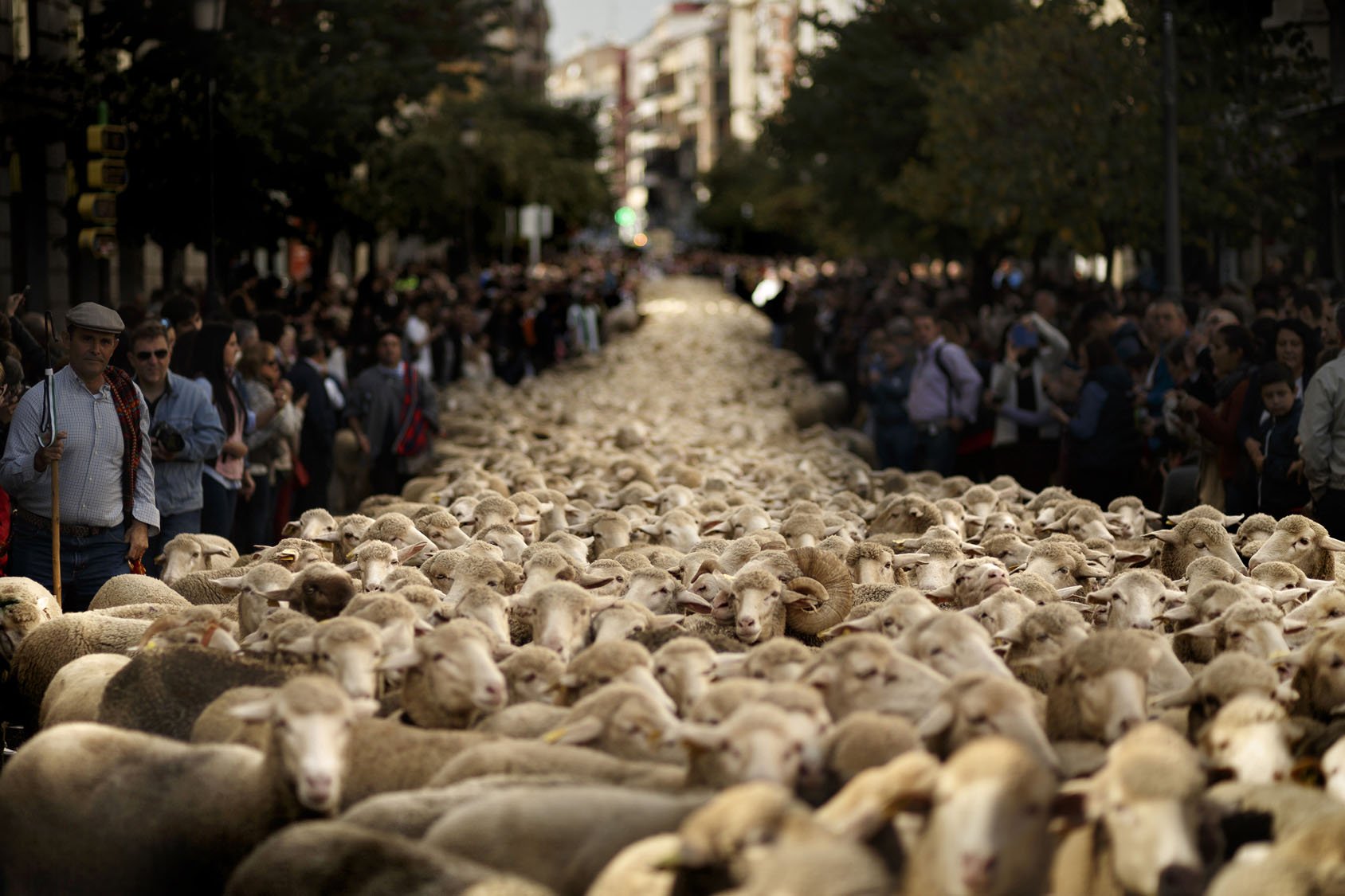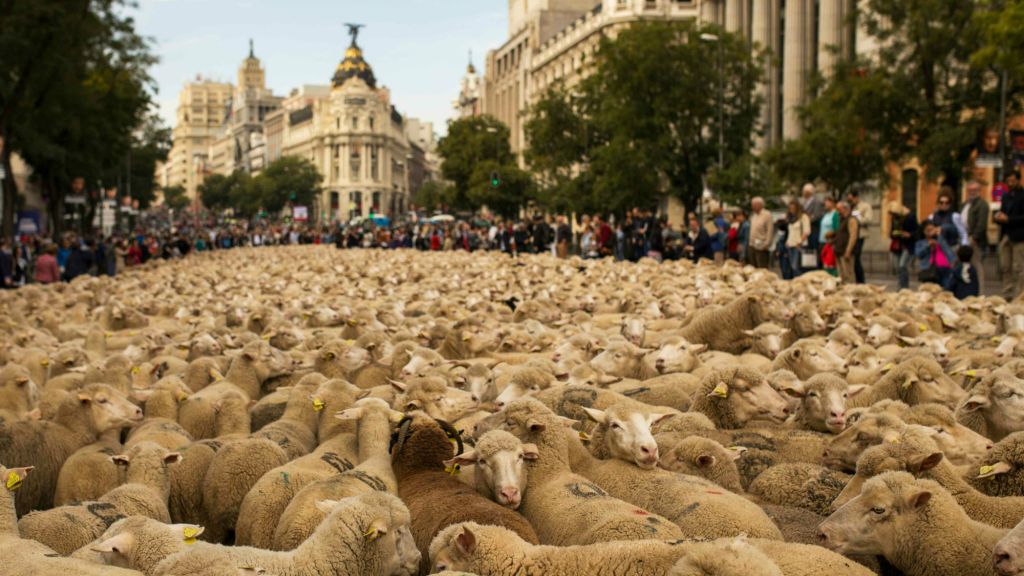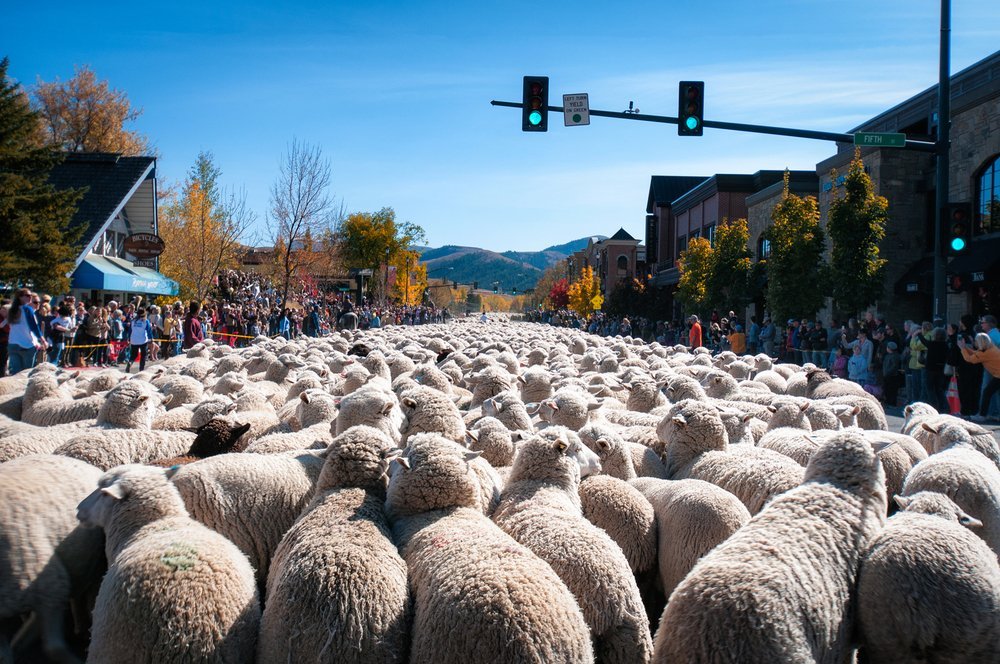The LONG Divorce | #4 “Feed My Sheep…” A Dead Husband, His Scattered Flock, and an Invitation to Wed

THE ANSWER TO ISRAEL’S PROBLEM RELIES ON THE SIMPLE FACT that Jesus Christ, Yeshua HaMashiach, is the good shepherd whom King David and the Prophets spoke of. He is the angel of Yahweh who stood before Moses in the burning bush—the pillar of cloud who led Israel by day and the pillar of fire who led them by night. Though the Word became flesh and dwelt among us, in many ways little changed. Jesus had always been the guiding light of salvation, the pathway to the Promised Land. But very few desired the good Shepherd. They wanted any elohim but their own. They wanted a sacrifice of their design. If Judah believed Him not, Jesus said, it’s simply “because ye are not my sheep.” In other words, not everyone who alleges Judah as their heritage, or cries “Lord, Lord!” for that matter, can rightfully claim spiritual kinship with Abraham.
Though it is true that the books of Moses ended with a curse, the bad blood pitted between Yahweh and the adulterous house of Israel, which included now the seventy people groups He disinherited at Babel, would not always remain. A day was coming, Yahweh promised, when He would gather His children from every nation, indeed, from the very ends of the earth, by which they had been scattered.
1 So it shall be when all of these things have come upon you, the blessing and the curse which I have set before you, and you call them to mind in all nations where the Lord your God has banished you,
2 and you return to the Lord your God and obey Him with all your heart and soul according to all that I command you today, you and your sons,
3 then the Lord your God will restore you from captivity, and have compassion on you, and will gather you again from all the peoples where the Lord your God has scattered you.
4 If your outcasts are at the ends of the earth, from there the Lord your God will gather you, and from there He will bring you back.
5 The Lord your God will bring you into the land which your fathers possessed, and you shall possess it; and He will prosper you and multiply you more than your fathers.
6 Moreover the Lord your God will circumcise your heart and the heart of your descendants, to love the Lord your God with all your heart and with all your soul, so that you may live.
Deuteronomy 30:1-6
In a likewise manner, Jesus actually spoke of two folds. On the night He was betrayed, the Shepherd sat around a table with his friends, breaking bread, washing feet, and outlining a rather peculiar plan for the congregation of His coming kingdom. He said it like this:
“14 I am the good shepherd, and know My sheep, and am known of mine. 15 As the Father knoweth Me, even so know I the Father: and I lay down My life for the sheep.16 And other sheep I have, which are not of this fold: them also I must bring, and they shall hear my voice; and there shall be one fold, and one shepherd.”
John 10:14-16

The sheep whom He spoke of were undoubtedly the northern ten tribes. They had been lost to the Gentile nations for nearly an entire millennium. When Jesus had earlier announced His imminent departure, the Jews quickly inquired among themselves, “Whither will He go that we shall not find him—will He go unto the dispersed among the Gentiles and teach the Gentiles?” In a way He would do just that, but first and foremost through the Apostles. By announcing His intent to bring the sheep back into the fold, Jesus was directing their attention to the prophet Micah:
I will surely assemble all of you, Jacob,
I will surely gather the remnant of Israel.
I will put them together like sheep in the fold;
Like a flock in the midst of its pasture
They will be noisy with men.
Micah 2:12
The prophet Amos said it like this:
For behold, I am commanding,
And I will shake the house of Israel among all nations
As grain is shaken in a sieve,
But not a kernel will fall to the ground.
Amos 9:9
Ezekiel spoke of it too.
16 Therefore say, “Thus says the Lord God [Yahweh], ‘Though I had removed them far away among the nations and though I had scattered them among the countries, yet I was a sanctuary for them a little while in the countries where they had gone.’”
17 Therefore say, ‘Thus says the Lord God [Yahweh], “I will gather you from the peoples and assemble you out of the countries among which you have been scattered, and I will give you the land of Israel.’”
Ezekiel 11:16-17
The prophet would further add:
As a shepherd cares for his herd in the day when he is among his scattered sheep, so I will care for My sheep and will deliver them from all the places to which they were scattered on a cloudy and gloomy day.
Ezekiel 34:12
Such promises fill the pages of the prophets. Isaiah’s position was that Yahweh would raise a sign for the nations and would assemble banished Israel, gathering them and Judah from the four corners of the earth (Isaiah 11:12). This is what Amos meant when he said the very nations would be shaken as grain in a sieve, that Israel might be separated—further insisting, not a single “kernel will fall to the ground.” That is, none of whom the Father has given can be snatched from His hand. But these promises in and of themselves do not resolve the mystery. Despite best intentions, one must ask, how could the Messiah possibly regather Israel? Specifically, what gave Him the legal authority to remarry a divorce bride when His very law openly opposed it?
Why—He would make her a widow, of course. Jesus died for the sins of the world.
To this effect Paul writes:
1 Know ye not, brethren, (for I speak to them that know the law,) how that the law hath dominion over a man as long as he liveth?
2 For the woman which hath an husband is bound by the law to her husband so long as he liveth; but if the husband be dead, she is loosed from the law of her husband.
3 So then if, while her husband liveth, she be married to another man, she shall be called an adulteress: but if her husband be dead, she is free from that law; so that she is no adulteress, though she be married to another man.
4 Wherefore, my brethren, ye also are become dead to the law by the body of Christ; that ye should be married to another, even to him who is raised from the dead, that we should bring forth fruit unto God.
Romans 7:1-4
The Apostle Paul was undoubtedly a brilliant orator of the Law—and widely misunderstood. He has already made his intended audience known, that he is speaking “to them that know the law (Romans 7:1).” And the law was clear. It unequivocally stated that a husband can never remarry his bride once she has been given the bill of divorce—particularly once she has become another man’s wife. This is the law. It is eternal. Yahweh will not break it. However, by saying we are loosed from the law of her husband, or rather, dead to the law, he is directing our attention to Deuteronomy 24.The woman is only free from the law of adultery once her original husband dies. To this Paul adds the glorious fact—she is now free to marry “him who is raised from the dead.”
Finally, this is the mystery revealed—the good news so rarely spoken about or known among the brethren. The scattered northern kingdom of Israel can now legally return to the Father through the death and resurrection of His son, the bridegroom. Unbeknownst to the spiritual princes of the nations, His master plan was indeed brilliantly executed. Yahweh disinherited the nations at Babel. He then scattered the assembly of Israel into all the nations so that they in turn became the Gentiles. And then He re-inherited not only all the peoples of the world, but the very earth which had once been given to the princes to govern. Then again, that is not to say everyone chooses Him as their shepherd. In fact, few will. But should they do so, there have only ever been two houses to discover. In all of Scripture, we are hard pressed to find a third option. Yahweh did not make a covenant with a Gentile church that is distinct from Israel. Israel is not sitting around waiting for our imminent rapture so that Yahweh may continue with his scheme. This is false advertising. There has never been a break in the story. If Jesus is our bridegroom, then we have no choice but to find our identity in one of those two houses—Judah or Israel.
Jesus instructed Peter to “feed My sheep,” and though it is true that Peter, James, and John initially agreed to spread the Gospel among the circumcised—that being the house of Judah—while Paul labored with the uncircumcised, Peter did not always shy from the scattered sheep. Paul’s first epistle to the Galatians, an assembly which Peter frequented, was in itself a prophetic fulfillment that Israel would begin to draw back to Yahweh in the latter days. The Galatians were Israelites. But getting back to Peter, the first line of his own epistle reads: “Peter, an apostle of Jesus Christ, to the strangers scattered (1 Peter 1:1).” James likewise addressed his book “to the twelve tribes scattered abroad…” In both cases, the Apostles were writing to the scattered sheep of Israel.

If we are not Jews but claim Jesus as our Messiah, then we are the children of painted faces and whoredoms, finally freed by law of her former adulteries, and brought back into the fold. Like the parable of the prodigal son, we are the foolish younger child who claimed his father’s inheritance in order that he may live with the pigs in a foreign land. The fact that we have been welcomed back with open arms is proof enough that the grace of God is awe-inspiring. Jesus said: “My sheep hear my voice, and I know them, and they follow me. And I give unto them eternal life; and they shall never perish, neither shall any man pluck them out of my hand (John 10:27-28).”
For this very reason, we must be careful of Christ’s warning:
“1 Verily, verily, I say unto you, he that entereth not by the door into the sheepfold, but climbeth up some other way, the same is a thief and a robber.
2 But he that entereth in by the door is the shepherd of the sheep.
3 To him the porter openeth; and the sheep hear his voice: and he calleth his own sheep by name, and leadeth them out.
4 And when he putteth forth his own sheep, he goeth before them, and the sheep follow him: for they know his voice.
5 And a stranger will they not follow, but will flee from him: for they know not the voice of strangers.
John 10:1-5
This parable Jesus spoke unto the Pharisees but, John writes, they did not understand. Regardless, He spoke unto them again: “Verily, verily, I say unto you, I am the door of the sheep (John 10:7).” He would quickly add: “I am the good shepherd. The good shepherd giveth his life for the sheep.” Blessed are those today who do understand. There are at present two divided houses, but if the Word of Yahweh through the prophets is to be fulfilled, then we are faced with a singular option. There is only one sheep gate. Conclusively, Judah and Israel will be reunited into one fold. By this we are to understand that all of the good Shepherd’s sheep will be regathered to the Promised Land. But that day has not yet happened. We have yet to be sifted out of the land—from the furthest ends of the earth. We have not, as Deuteronomy 30 foretold, been brought into the inheritance which our fathers possessed, in order that we too may possess it.
The final trumpet has not yet alerted us to heavens rallying cry. The good Shepherd has not yet descended with a shout, commanding the eyes of the dead, with the blessed voice that is only legible among His dearest friends, to be woken and behold Him. We have yet to be gathered as one flock, with Psalm 23 eternally constituting our rule of faith.
Or as Jesus told the Jews in Jerusalem, while confronted with charges of blasphemy: “My sheep hear my voice, and I know them, and they follow me. And I give unto them eternal life; and they shall never perish, neither shall any man pluck them out of my hand (John 10:27-28).”
Upon hearing this, the Jews, John wrote, took up stones again to stone him. They wanted a shepherd—any shepherd but their own.